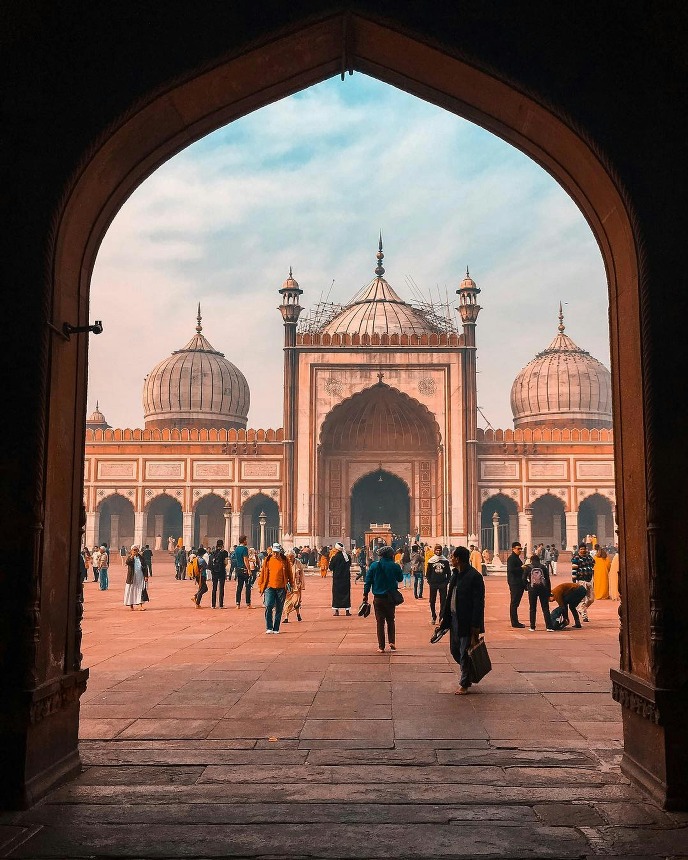Elections in India, the world's largest democracy
This year, around 4 billion people in almost 70 countries as well as in Europe will have the opportunity to vote. This year more than ever will reveal the state of democracy in the world. UG researchers Ritumbra Manuvie, Pieter de Wilde, and Lisa Gaufman look ahead to the elections in India, Europe, and the United States, respectively. This week: Ritumbra Manuvie.
On 19 April, elections will be held for the Indian lower house, the Lok Sabha. It is very unlikely that the ruling Bharatiya Janata Party (BJP) will not win. ´India is the world's largest democracy, in terms of the number of voters, but also with regard to the election infrastructure,´ says Assistant Professor Ritumbra Manuvie ´In the tiniest villages there are polling stations, so to hold elections everywhere on the same day is a logistic nightmare.´ Consequently, the elections last six weeks.

With 47 seats, the Indian National Congress (INC) is by far the largest opposition party, but is dwarfed by the Bharatiya Janata Party’s (BJP) 290 seats. With that, Modi´s party has a majority in the parliament consisting of 543 seats. Together with fifteen other parties, most of which only have a few seats, the BJP forms a coalition occupying a total of 339 seats.
Right-wing nationalist Hindu party
´The BJP is a right-wing nationalist Hindu party, and really the political wing of the Rashtriya Swayamsevak Sangh,´ says Munuvie. ´That is an extreme right, paramilitary organization that emerged in the forties, during India´s war for independence. The RSS was opposed to dividing India along religious lines, which in essence meant separating it from Pakistan, which is predominantly Muslim, and felt that all of India should become one Hindu nation. Members of this organization killed Mahatma Gandhi. They viewed him as foreign to the Indian culture and hostile towards the Hindus. Prime minister Modi is a ´pra charak´, as RSS adherents are called.´

Progressive and secular India
Gandhi´s party, the INC, on the other hand, propagates neutral and non-religious values. Manuvie: 'The INC was founded in 1885 as a progressive front against the colonial repression. The party´s origins are rooted in the war for independence. Ever since its establishment, the INC has preached the idea of a democratic, progressive, and secular India. With rights for everyone, regardless of the caste you belong to.´
Taking away civil rights
Following the inevitable election victory, the BJP seems to want to focus all its energy on implementing a new registration system for citizens. ´46 percent of the people in India do not have a birth certificate,´ says Manuvie. ´Neither do I, and I come from a well-developed family. Currently, a system called Aadhaar is being used which makes almost everyone visible for the government through their fingerprints and the use of an iris scan. However, the Supreme Court has ruled that this is not a valid proof of citizenship. That can only be done by showing proof of your descent and birth, but that is actually problematic for a lot of people, as they are not in possession of a birth certificate. The BJP now wants to adopt new legislation to deport Muslims in particular who cannot prove their citizenship. This will really affect millions of people who will be deprived of their civil rights and become stateless.’

Wilders pro-Hindu
In the more than likely scenario, according to Manuvie, that BJB will remain the largest party and in case Geert Wilders will be the next Prime Minister of the Netherlands, we can look forward to strong international ties with India—one of the few countries from which the Netherlands imports more than it exports. The common denominator: a resentment towards Muslims. ´In India, Wilders is very well-known as pro-Hindu and anti-Muslim. He has supported a BJP spokesperson on Twitter when she was under attack for criticizing Islam, for example. That riot led to the decapitation of a BJP-adherent by two Muslims. When looking at Wilders' followers, you find a lot of Indians.´
Manuvie is convinced that this large Indian support is an explanation for Wilders´ unexpected success in the recent elections in the Netherlands. My rational feeling is that he has received a lot of support from Indians, second generation immigrants, and Surinam Hindus, mostly because Modi is popular amongst them.
Text: Bert Platzer. This article has been taken from our alumni magazine Broerstraat 5 .
More news
-
15 September 2025
Successful visit to the UG by Rector of Institut Teknologi Bandung
